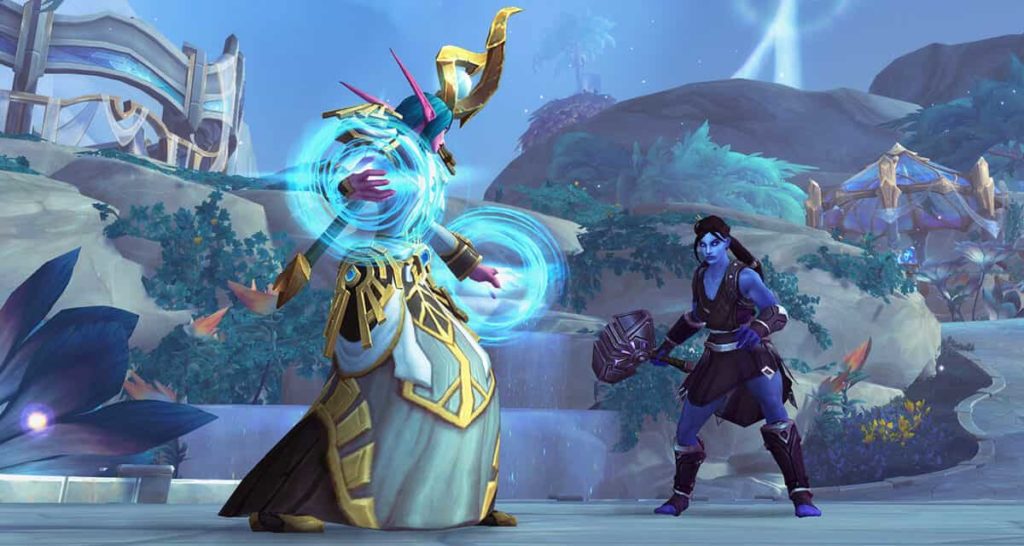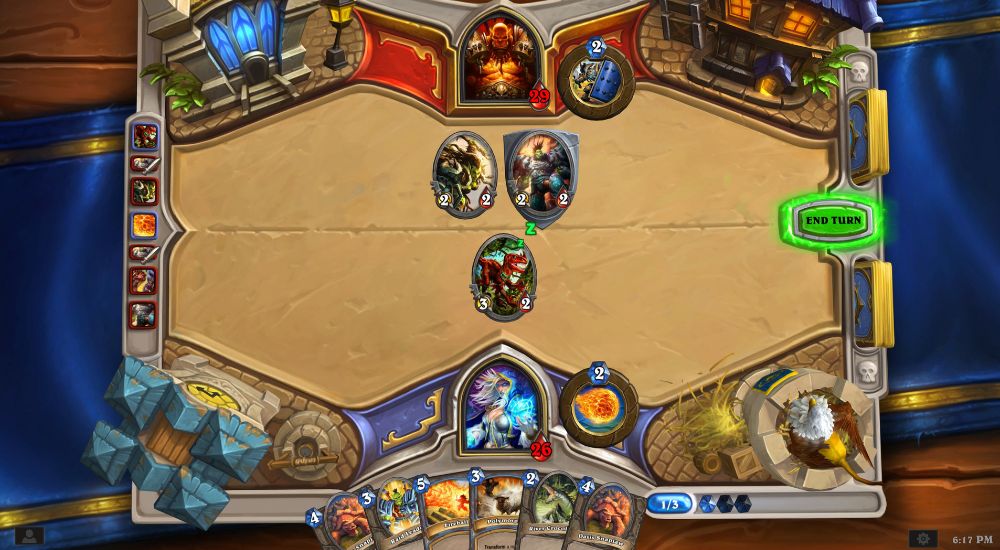Have you ever wondered: “Do Unity games pay off?”? Unity has emerged as a favorite platform for game development, appealing to both indie developers eager to break into the industry and established commercial teams. Its flexibility and user-friendly interface, coupled with a vast and supportive community, make it an attractive choice for creating games and applications across multiple platforms, including Mac, PC, iOS, and Android.
For developers, the journey from concept to completion is arduous, but the extensive resources available within the Unity ecosystem—such as a robust asset library, comprehensive tutorials, and community support—greatly facilitate this process. As developers near the completion of their mobile game, the focus inevitably shifts to monetization. Whether working solo or as part of a dedicated team, the goal is to not only recoup the investment of time and effort but also to achieve profitability.
The question then arises: Do Unity games pay off? Unlike games developed on other engines, Unity’s cross-platform capabilities offer a unique advantage, enabling developers to reach a broader audience without significantly increasing their workload. This potential for multi-platform profitability is a compelling reason to consider Unity for game development.
To navigate the complex landscape of game monetization, developers must carefully plan their strategy before launch. This article delves into four primary strategies for monetizing Unity games, weighing their respective pros and cons to help developers make informed decisions and maximize their profit potential.
Do Unity games pay off?
Yes, developing games in Unity can pay off! The ceiling is almost endless, but, even considering Unity is a beginner-friendly game engine, getting enough money to pay the bills can be troublesome if you’re a newcomer to game development.
But you might ask: “How exactly do I make money with Unity games?”
In today’s post, we’ll give you some pointers on monetization methods to make sure you have a positive answer to your question: after all, do Unity games pay off?
How to make money with Unity Games?

Paid games made in Unity
The simplest way to monetize a Unity game is to simply make it a paid game through platforms like Steam, Google Play, and the like. Whenever a player looking for new games comes across one that costs money, they are more likely to assume they are of higher quality than their free counterparts.
Just like how chances are students will finish a course after they’ve paid for it, customers who pay for your game are likely to play it more often than free ones and to recommend it to their friends. These factors alone could turn your game into an impressive source of income so long as you can bring in enough players.
That said, it’s not all sunshine and roses. For your Unity games to pay off in this monetization model, you better make sure to build up buzz about your game on social media and invest some cash into advertisements to maximize the number of players waiting for your game to launch. Another way to avoid investing too much money in advertising is to already have a dedicated fan base from previous projects, but that’s easier said than done.
Downloadable content, better known by the acronym DLC, is also another way to monetize an already complete game. They come in many flavors – some will add simple cosmetic changes while others will expand the game’s universe with new areas, characters, and mechanics to toy with. They are also a great way to update a game and add more content to keep players interested for months (or even years) after a game’s release.
Some DLCs expand on the base game so much that they may add dozens (if not hundreds) of playtime! One such example is Risk of Rain 2’s first DLC, Survivors of the Void, which launched in early March on Steam and added a lot of playtime through the addition of a plethora of new items to play with, characters to master, bosses to beat and environments to explore!
Subscription models
While similar to the method above, games that use the subscription model revolve around recurring payments – more often than not, monthly. This approach gives game developers a lot of the benefits as the previous one but without the need to attract as many new players. A monthly subscription was the model used in some of the most popular online multiplayer games of all time, such as World of Warcraft and Old School RuneScape.

On the other hand, this approach requires developers to regularly update the game and have bugs fixed as soon as possible. All in all, this strategy requires a big team and a substantial amount of long-term commitment, but, if your player base is large enough, these types of games will bring in a lot of revenue every month.
Advertisements in Unity games
Whenever a player views an advertisement, you make some money. And whenever they interact with an ad, you make even more! Hence, ads are an effective way to profit from free Unity games – since most advertisements are very short and/or only a minor inconvenience.
If you’re not careful and bombard the players with ads, however, you risk making them upset and potentially stop playing your game. Keeping ads to a minimum and ensuring they’re relevant is a good way to guarantee a good balance between your income and the user’s experience.
In some games, the developers might choose to incorporate bonuses for watching and/or interacting with the ads, so players can benefit from them without feeling like they were forced to go through them. That said, this approach might not work for all video games.
Another way to use them in your favor is to include an in-app purchase to disable ads everywhere on your game for a small fee – often a dollar or less – in exchange for less inconvenience during their gameplay.
Oh, and make sure to NEVER include ads on paid games! We all want the answer to “Do Unity games pay off?” to be positive, however, we can not make our players give up on our game!
In-game microtransactions (MTX)
Microtransactions are all the rage in gaming monetization. The idea here is to make a game completely free to play and allow players to spend real money on certain items or services. They have the potential for stratospheric profits, but, if done wrong, MTXs will be very controversial.
In other words, you have to make sure you’re not giving buyers peanuts, but you can’t give them too much either – in which case your game will be known as a “pay to win” game. This practice is much more problematic in progression-based online games where competition is a thing, such as MMORPGs in general.
Path of Exile is a game that deals with this issue in an extremely healthy way. While their MTXs can be expensive compared to other free games on the market, they only sell products that make your gameplay more convenient (through stash tabs to store your loot, guild slots, and character slots) and character effects, such as alternate visuals for your favorite skills, cohesive armor sets and other effects that are only cosmetic and don’t give players an in-game advantage.
Another way to make good use of in-app purchases in your Unity games is to sell bundles and starter packs, which are nothing more than a set of items at discounted prices. Some of them may even include cosmetic items not obtainable anywhere else! One example we can think of is Hearthstone, a collectible card game developed in Unity that makes very good use of regular expansions and sells card bundles to boost their revenue.

Turning creativity into cash: maximizing revenue from your Unity game
Now you know the answer to the question: “Do Unity games pay off?”. In conclusion, developing games in Unity can indeed be financially rewarding, though it requires strategic planning and effective execution. Unity’s flexibility, extensive resources, and supportive community provide a solid foundation for both indie developers and established teams. The platform’s cross-platform capabilities significantly enhance the potential for reaching a broad audience, which is crucial for profitability.
Monetization methods such as paid games, downloadable content (DLC), subscription models, advertisements, and microtransactions each offer unique advantages and challenges. Paid games and DLC can generate steady income and keep players engaged over time, but they require effective marketing and a strong fan base.
Subscription models offer recurring revenue but demand continuous content updates and bug fixes. Advertisements can monetize free games effectively if balanced well, while microtransactions can drive significant revenue if they avoid the pitfalls of “pay to win” perceptions.
Ultimately, whether Unity games pay off depends on the developer’s ability to navigate these monetization strategies skillfully. With careful planning and leveraging Unity’s strengths, developers can turn their creative visions into profitable ventures, making the journey from concept to completion worthwhile.
So, do Unity games pay off? All in all, it’s possible to make Unity games pay off and generate more than enough income through a combination of various methods. However, creating a polished, cohesive, and beautiful gaming experience can be troublesome as you have to deal with the programming, marketing, asset creation, and many other aspects of game development.
What if you could instead give your ideas to an experienced game studio to bring them to life for you and help you choose the ideal monetization model for your game? We at Main Leaf are an experienced game development studio that works on demand, and making the game of your dreams part of reality is our craft.
Got interested? Head to the top of this post and request a quote on our services! We’d be delighted to hear what ideas you have.

